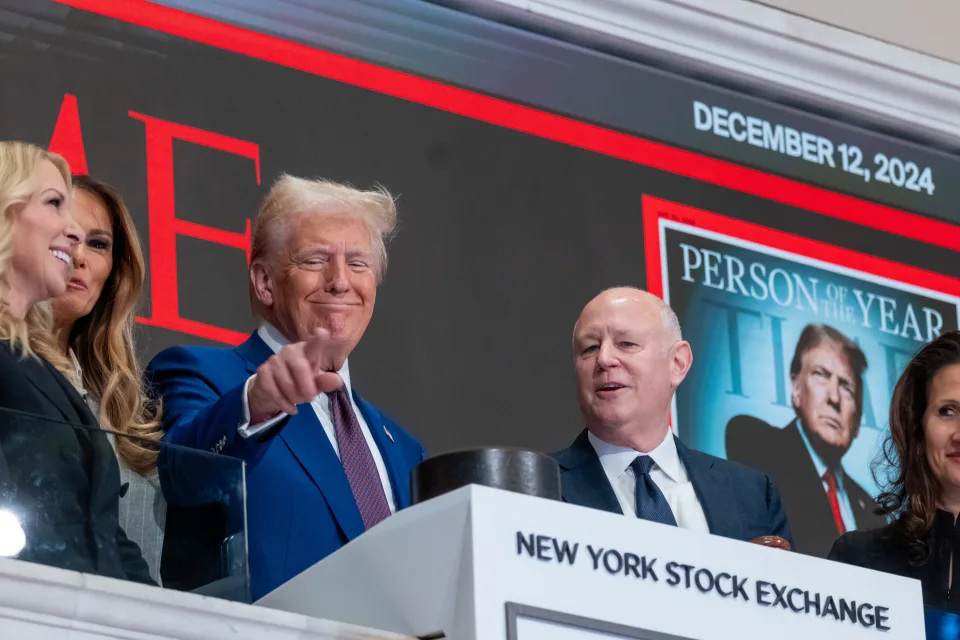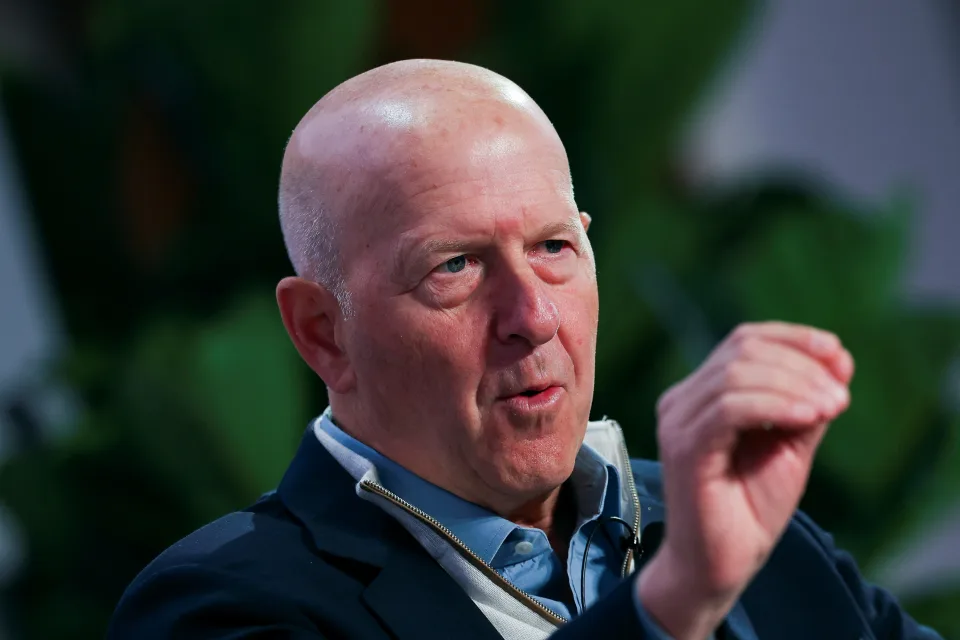When Goldman Sachs (GS) CEO David Solomon got an invite to watch Donald Trump triumphantly ring the opening bell at the New York Stock Exchange earlier this month, there was no question he would go.
Not only was the next US president coming to Wall Street but he was giving Solomon, Citigroup (C) CEO Jane Fraser, and a host of other corporate executives a chance to meet and mingle with a chunk of his cabinet nominees on the trading floor.
Minutes ahead of Trump’s bell ringing, the crowd broke into a cheer: “U-S-A, U-S-A.”
Solomon and other big bank bosses certainly have a lot to cheer about as 2024 comes to an end.
Dealmaking and trading are surging, interest rates are considerably lower than they were a year ago, and the prospect of looser banking rules feels possible with a new Republican administration about to take over the White House. Bonuses are also expected to be up once checks are cut in the new year.
No bank is better positioned to take advantage of this shift than Goldman, which relies heavily on the Wall Street-centric businesses of investment banking, trading, and wealth management. Its stock has surged since the election of Trump, and over the past 12 months it is up 50%.
But it’s not the only bank surging higher. Since the election, the stocks of JPMorgan Chase (JPM) and Bank of America (BAC), Citigroup, Wells Fargo (WFC), and Morgan Stanley (MS) have risen between 5% and 12% as of Friday.
“A lot of bankers, they’re like dancing in the street,” JPMorgan Chase CEO Jamie Dimon said days after Trump won the election.
JPMorgan, the nation’s biggest bank, is among those having a great year. Analysts expect the bank to break another record for highest profits in US banking history. Investment banking revenue is expected to be up 45% in the fourth quarter.
The hope is this current rally could be just the beginning of a bull run banks haven’t seen in over a generation.
Some predict 2025 will be a repeat of 1995, when bank stocks surged after Federal Reserve rate cuts, a soft landing engineered by then-central bank Chair Alan Greenspan and a deregulation stance taken by then-President Bill Clinton.
A federal law signed by Clinton in 1994 eliminated restrictions that stopped banks from opening branches across state lines, setting the stage for a period of consolidation that would eventually give rise to coast-to-coast empires amassed by JPMorgan Chase, Wells Fargo, Bank of America, and Citigroup.
In 1995, an index tracking the banking sector finished up more than 40%, outperforming the S&P 500 (GSCP). That outperformance would hold for two more years.
yahoofinance




